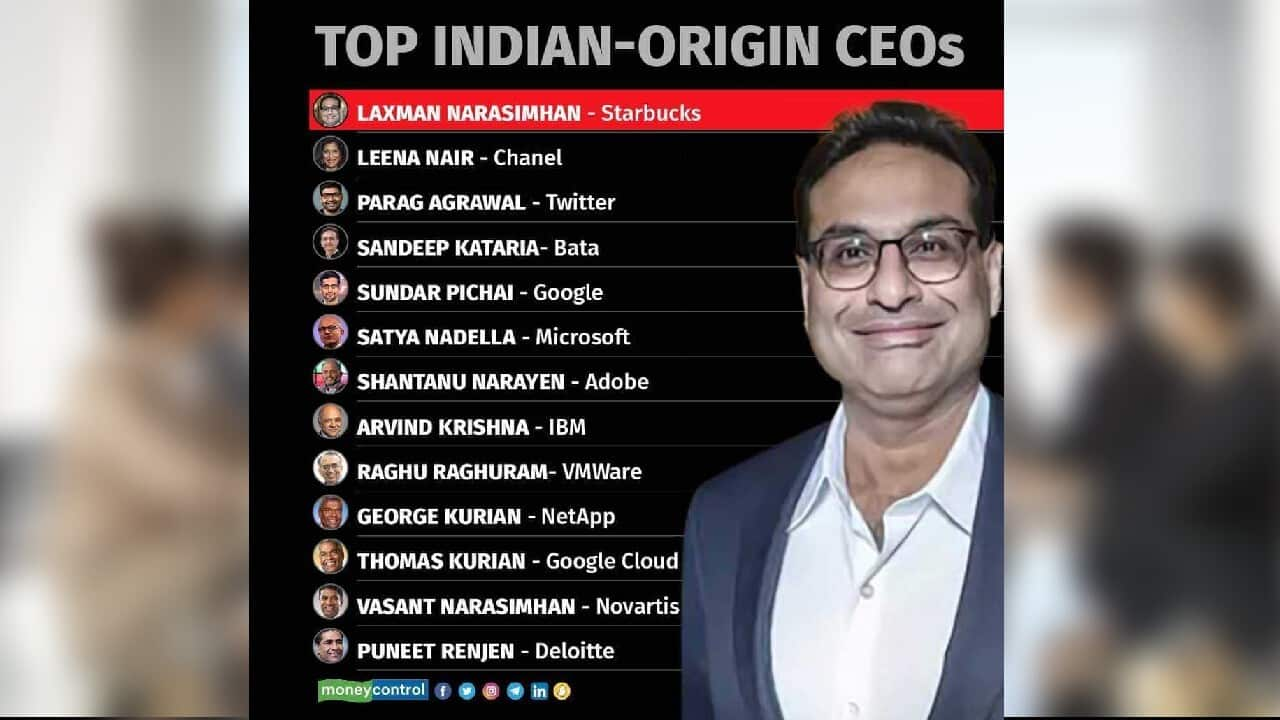Laxman Narasimhan will relocate from London to Seattle, to join Starbucks as their incoming CEO.
Sometime around 1970, futurist and author Alvin Toffler wrote in his book Future Shock, a runaway best-seller, that as long an an industrialising nation was poor, it welcomed without argument any technical innovation that promised economic output or material welfare. But once it began a take-off for industrialisation, the “anything goes” policy became redundant. Then, far more sophisticated choices would be needed for choosing amongst technologies to stave off disaster, and discover future opportunities. In other words, a society would have to select its machines, processes, techniques and systems in groups and clusters, and de facto make “super-choices” about its own future. Toffler could have said the same with equal truth about the way organisations select their leadership .
Laxman Narasimhan has become the latest executive of Indian origin to helm a large global multinational company, after Parag Agrawal at Twitter, Sundar Pichai at Google, Satya Nadella at Microsoft, Shantanu Narayan at Adobe, Arvind Krishna at IBM, and Raghu Raghuram at VMWare, among others.

Narasimhan, 55, who stepped down as the CEO at Reckitt Benckiser earlier, will relocate from London to Seattle to join Starbucks as their incoming CEO in October. Narasimhan was raised in Pune, India, and got a degree in mechanical engineering from the College of Engineering, Pune, an MA in German and International Studies from The Lauder Institute at the University of Pennsylvania, and an MBA in finance from the Wharton School. He also worked for consulting firm McKinsey for almost two decades before he joined PepsiCo in 2012 and became chief commercial officer there.
While the trend of selecting Indian leaders is not new, an obvious question arises as to why Narasimhan and not an executive of American origin, given Starbucks headquarters are in America?
Pallavi Kathuria, partner at executive search firm Egon Zehnder India, says that there are at least three factors at play in such situations. Most Indian-origin leaders have grown up in India where resources of all kinds from seats at universities to jobs and opportunities at large contribute in making them not only keenly competitive but also with a strong sense of innovation in being able to get the job done with less than optimum resources.
The second, she adds, is that “India’s complexities, challenges and unique set of quirks make any leader from the subcontinent develop a winning proportionate balance of IQ and EQ which is very special.” That sort of management repertoire not only allows a leader to engage with one’s board members, customers, shareholders, partners and employees but also go on to think logically on strategy, market tactics, balance-sheet driven operations and product and service design, she says.
Kathuria adds that one must not forget that most Indian-origin CEOs at the highest levels come with global experience and are unafraid of venturing out with their families to travel and work across cultures and markets which makes their potential all the more valuable to prospective corporations that are themselves global in nature. Starbucks, for example, as an international purveyor of coffee and food is growing rapidly in not just India but also other markets and in the long term will more than likely see most of its revenue come from outside of the USA. Starbucks has set up around 280 stores in India across 30 cities in the past decade since it launched in partnership with the Tata Group.
The company had said that it aims to open more than 20,000 cafes globally by the end of the decade and is likely to see a lot of expansion in countries across the world. That makes it not just important but imperative that a CEO who runs it has the ability to bridge different cultures, work, and operating styles in order to drive successful growth and efficiency. “Finally, it’s no secret that Indian CEOs have stellar academic backgrounds as well as a work ethic that is top of the line when it comes to the corporate elite band of managers,” Kathuria says.
Rituparna Chakraborty, co-founder and EVP, TeamLease, says there isn’t a common thread in overseas companies hiring Indian CEOs but there is an overlay in terms of being able to manage scale, and the fact that it is the future drift of the world where growth trajectories are likely to be headed. That is possibly the consideration when looking at where talent is being selected from. “The other is the element of human capital which is to say, the access to it, the quantum of it and the understanding of it. Somewhere the fact that most of these large businesses may have a dependency on managing a large diverse workforce which may or not be from India becomes important, and all could be clues as to the selection of the types of leaders that are happening as we see it today,” Chakraborty says.
The other skill-set that Indian leaders are recognised for is being adept at problem-solving. “Indian-origin executives are acclaimed for navigating complex hierarchies and politics that serves them well in the corporate world,” says Sonal Agrawal, global chair at AltoPartners and managing partner, Accord India. “Since liberalisation, Indian professionals have seen complexity, scale and are fully integrated into global management hierarchies – and this has led to the emergence of the global Indian who has had a fair shot at the top jobs. There is also a natural language advantage, for Indians who work in Anglo-Saxon countries.”
Agrawal goes on to add that it takes immigrants a generation or so to rise to the top, in academia, as well as in public and professional life. “America is a country of immigrants, and for the last decade or two, we have seen the rise of Indian soft power.”